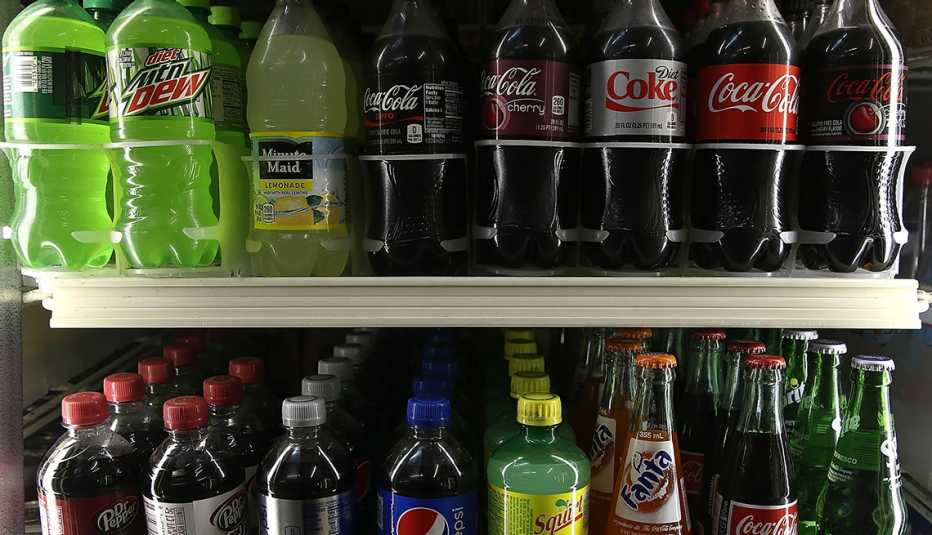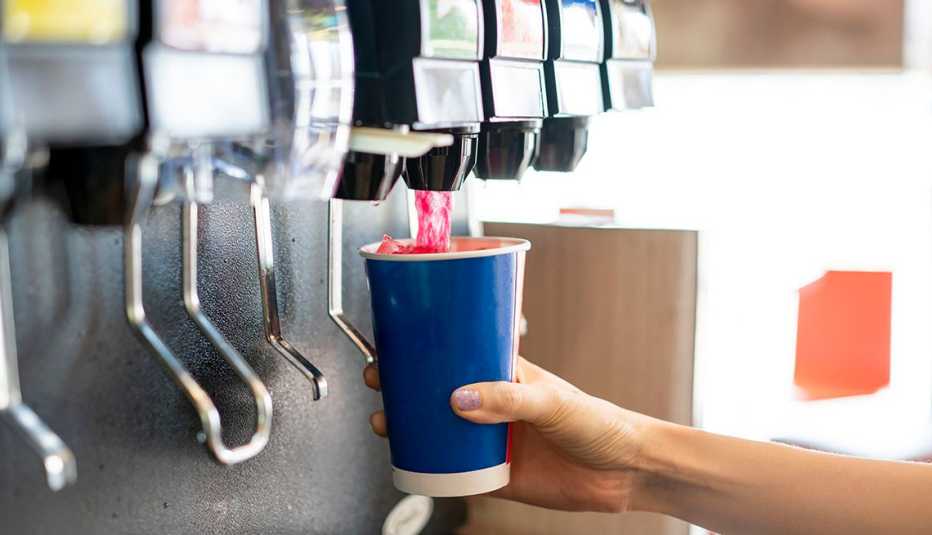AARP Hearing Center
Whether you call it a soft drink, soda or pop, you’ve probably noticed that every few months one study or another comes out detailing their health risks. Now, new research published earlier this month in JAMA Internal Medicine offers an even more sobering message: Just two glasses per day of these drinks, whether they’re sweetened with sugar or artificial sweeteners, raises the risk of premature death by 17 percent, compared to those who sip them less than once a month.
But studies on soft drinks can be confusing because some of them aren’t well controlled, says Bonnie Liebman, director of nutrition at the Center for Science in the Public Interest. “Many of these studies are observational studies, which means researchers are relying on people’s memories and recall, which can be problematic,” she explains. In addition, it’s often impossible to tease out whether the effects are due to reverse causation — that is, study subjects “may be drinking diet drinks because they are already overweight, and thus many of their health problems can stem from that,” Liebman notes.
Here’s a look at what the research shows, and a bottom line for you.
Stay away from sugary drinks, period
A study published earlier this year in the journal Circulation followed over 118,000 men and women for 30 years and concluded that each daily 12-ounce serving of a sugar-sweetened beverage — including soft drinks, lemonade and other sugary fruit drinks — raised the risk of death by 7 percent, including a 5 percent increased risk for cancer death, and a 10 percent increased risk for death from cardiovascular disease. “Sugary drinks lead to weight gain, and anything that leads to weight gain increases risk of conditions such as heart disease, type 2 diabetes and even certain cancers,” explains Liebman. There are also other ingredients that may come into play. “Soft drinks are made up of carbonated water, and there is some preliminary research that suggests carbonated water may increase levels of the hunger hormone ghrelin, thereby making one hungrier, and that may lead to weight gain,” adds Nancy Farrell Allen, a spokesperson for the Academy of Nutrition and Dietetics and a registered dietician in Fredericksburg, Virginia.




































































